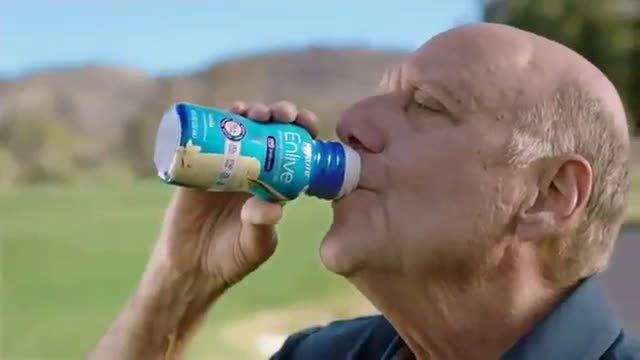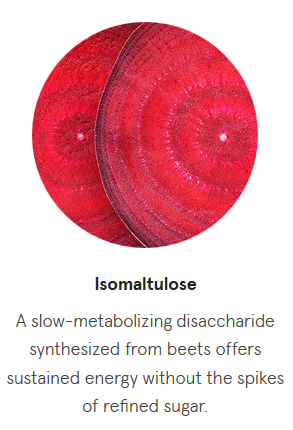Soylent Ingredient Breakdown from a Food Scientist
Hi Everyone, my name is Andrew, I'm a Canadian Food Scientist and former top writer on Quora, but The future is Steemit of course!

https://www.quora.com/profile/Andrew-Roberts-7 is my Quora if anyone wants to see why Steemit is better than Quora :D
I wanted to share my thoughts on Soylent with everyone since I bet there are a few users in this community.
Read my ingredient breakdown below to find out why there are no beets in soylent, even if Soylent thinks there are.
Soylent is a new player in an old market. They are not the inventors of the meal replacement.
The idea of a meal replacement has been around for decades. Slimfast, Boost and Ensure being the household names. Meal replacements contain a blend of all of the major nutrient groups (protein, fat, carbohydrates, vitamins and minerals) in simple formats like drink mixes or bars. Meal replacements are so unoriginal that their nutrient content ranges for almost every nutrient is tightly regulated in both Canada and the US. This is why the best way to compare them is by their nutrient sources (ingredients).
A review of Soylent's nutrient profile and ingredients do not set it apart from the crowd in the meal replacement world. The major difference between soylent and most others is their focus on marketing to tech community and young professionals. Traditionally meal replacements were more likely to be marketed to weight loss program participants, athletes and those with restrictive diets or digestive issues. I wonder if Soylent genuinely thought they invented the concept of Meal replacements during their crowdfunding or they just hit the perfect demographic of customers who had never heard of the concept.
An Ensure Meal Replacement ad, quite a different look.

Soylent 1.5 Powder (drink mix) Ingredient Breakdown:
Protein:
The major categories of meal replacement beverages are differentiated primarily based on their protein inputs. The most common are Dairy (like most Slimfast, Ensure, Boost products) and Vegan (Soylent, Garden of Life, Vega, others).
Rice Protein - Most vegetable protein sources have a naturally inferior amino acid profile to meat, dairy and egg proteins, but of course there are many reasons to prefer vegetable protein. Rice protein is often mixed with complimentary proteins in similar products, Rice, Pea and Hemp is a popular protein mix. Soylent 1.5 uses only rice protein which raises question about the protein quality if consumed every day as rice is low in lysine. Amino acid score is definitely something I would ask about if consuming this daily.
Carbohydrates:
Maltodextrin - A source of carbohydrates, plain and simple. This is usually sourced from Corn or Tapioca. It is basically starch that has been enzymatically broken down to smaller, sweeter, smoother molecules. Definitely not a premium carbohydrate source, but adds good mouthfeel and sweetness. It is also the carrier for many ingredient powders for foods that just don't want to try into powders on their own(oil powders, etc). This is one of the cheapest food ingredients available. Consumers don't like to see it, but it makes these drinks sweet and smooth.
There are no beets in Soylent, explained below. A pile of white sugar would be more accurate.

Isomaltulose - Isomaltulose is an further produced carbohydrate made from beet sugar. Soylent's main page has a picture of a table beet, (the red vegetable beet). Beet sugar is a white beet from which pure sugar (99.9% sucrose) is extracted. There are no 'beets' as we call them, or that pictured in Soylent. This is a mistake on their part. This type of misunderstanding of ingredient information is common when a third party formulates a food product as is likely the case here. Making a meal replacement is as easy as calling any dry blend manufacturer and asking for one, naming the ingredients you want.
A Sugar Beet:

Oat flour - Plain and simple, a source of carbohydrates and fibre. Oats are a nice touch and can be gritty when raw, so credit to them for gaining a smooth texture with oats.
Modified Food Starch - Most likely used as a thickener in this application. I'm surprised they did not disclose the type. Yes, they are allowed to not disclose. Likely Corn.
Fats:
Canola and Sunflower Oil - A source of fatty acids and calories (energy). Canola gets a bit of a bad rap these days due to often being from a GMO crop.
LifesDHA powder - A source of DHA omega 3 fatty acids. A nice touch that this is vegan sourced (from Algae)
The Rest
Rice Starch - A source of carbohydrates. Rice based protein beverages and meal replacements have sometimes flagged concerns for heavy metal (arsenic) content. I'd double check with the manufacturer that levels are controlled for if you plan on consuming soylent daily.
Soy Lecithin - An emulsifier and source of fat. Likely GMO.
Salt - Sodium is an essential nutrient. Meal replacements must contain a significant amount of every nutrient.
Cellulose Gum - A processed cellulose product, often sourced from wood/paper.
Xanthan - Micro-biologically produced thickener, added for mouthfeel.
Carrageenan - Seaweed sourced gum, added for mouthfeel.
Value
A 1 month supply, or 28 meals of Soylent is priced at $54 in Canada. This is a comparable cost to super-premium brands like Garden of Life Raw Meal, which offers pluses such as organic certification, additional powdered fruit and vegetable ingredients and a wide variety of sprouted grains.
Buy or Pass?
Soylent is a new player in an old market but that is not how they see themselves. Their management might genuinely believe they came up with the idea of meal replacements, but they definitely have not perfected them yet. Unfortunately for their consumers, their major innovation has been to the marketing of their product, the contents are very mediocre quality ingredients. I expect they will continue to serve their segment of the market well and improve products. They are missing out on a decent chunk of consumers who seek Non-GMO products.
If I were in the market for a meal replacement today, I would choose the quality and varied ingredients of a premium retail brand such as Garden of Life. That being said, everyone has a different tolerance for the often bad flavour and mouthfeel of vegetarian meal replacements so if you can find one you like, stick with it.
P.S. Eating real food is more fun!
This is actually a very informative post. My homie @kylo.ren drinks soylent as a part of his diet and they've always been tweaking their formula almost like Github update their releases patch by patch..
@andrewfoodist I enjoyed this post and read well is extremely valuable for others

Read the last paragraph of the article then try again.
👍nice post @andrewfoodist
This is a popular drink among developers and at hackathons :)
bullshit
bullshit to who @sirloins. can you please detail your concerns what you mean by this?
Someone just skimming the article may actually think this is some kind of health food. Why a food scientist has taken any time to discuss this I don't understand. (other than he is actually promoting it) You stated this was a popular drink at hackathons. This struck me as supporting the idea that the product is a good thing. These concerns would have been better directed at the original author. If you haven't seen the movie Soylent Green then you may not share my sentiments.
Good Post!
Here is some info most all steemit users can benefit from:
Solution to the Curation Reward
Beyond the STEEM Whitepaper – 1. Blogging and Curation Rewards Fund; Steem Backed Dollars Creation
Beyond the STEEM Whitepaper –2. Where the money come from; New Users DO NOT Increase the Value of Steem (yet)
Beyond Trading – The Medium Term Fundamentals. 1. – 7.29.2016
I wouldn't buy this shit... it's made from people. Yuck...
(also I saw a rat in their warehouse on VICE or something)
They have an open source database and a useful interface for submitting and browsing alternative Soylent recipes, many of which are GMO Free and/or Organic, among countless other recipes that account for various dietary restrictions.
...They even calculate the Nutrition Facts and have recipes categorized by Nutrient Profiles.
Great article. I don't consume anything like this, but obviously others do, so I'm glad to see you breaking it down for them. I'm a real food proponent, and yes I saw your P.S. :) I make chicken stock, pickles, water kefir, cereal, yogurt, sourdough, etc. Working on a post about baby steps to eating clean, but it's taking me forever to actually finish it. (Sigh.) Anyways...welcome to Steemit!
Strikes me as odd as to why some commenters can't understand the appeal of Soylent and similar food replacements.
Then again, I don't understand how some people still want to blame vaccines for autism even after as much evidence not showing a link and how the main source of the hysteria was proven to not only be false, but fabricated by someone trying to profit from creating the hysteria.
Anyway, Soylent is a less than ideal meal replacement - cooking your own fresh meals being ideal - but it serves a useful purpose. Like anything, do it in moderation and don't get caught up in the hype. If you do, that's your fault, it's not the fault of the marketers.
p.s. Cooking real food takes time, and sometimes either we don't have time for that or don't like to do that. Soylent ain't that bad, in moderation.
things that are good for human beings are welcome @andrewfoodist !
Hello Andrew, you got one thing wrong in your analysis which led to another mistake near the end - Soylent is not a meal replacement. Unlike Slimfast and Garden of Life, Soylent is a food item. It would be like calling a salad a meal replacement for eggs on toast. The main difference between meal replacements and food is calories, and sometimes protein or other macronutrients.
The second mistake is your value comparison. $60 Garden of Life meal replacement does get you 28 of what they call meals - which is equivalent to 3500 total kcal. $54 of Soylent gets you 28 of what they call meals - or 14000 kcal. That means Soylent, analyzed as a food item, is about 4x less expensive.
RE: GMOs, the company is solidly pro-GMO and I don't see them changing any time soon.
edit: as an fyi 1.5 is not being produced any more, their current powder is 1.6. There was some major change, rice protein is now completely out.
Thanks for having a post that adds some value to the discussion. I wish people were more likely to give comments like yours a thumbs up even if it doesn't agree 100% with what either they or the OP is saying. Comments that simply pile on the love without saying anything shouldn't be upvoted so much, IMO. Let's promote valuable discussion and different viewpoints by giving useful comments more love.
very helpful!
Good to see content from a new domain! I just watched a documentary on Soylent the other day and was curious about an expert point of view.